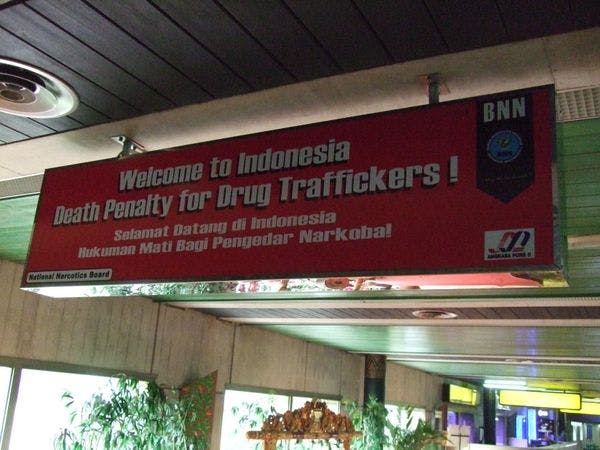Flickr CC Jeroen Mirck
Indonesia to continue shooting drug traffickers
By Ryan Dagur
Indonesia's new anti-narcotics chief has vowed to emulate his predecessor by endorsing the summary killing of alleged drug traffickers. Heru Winarko officially took over running the National Narcotics Agency on March 5. The man he replaced, Budi Waseso, claimed to have been inspired by the mass killing of drug suspects in the Philippines under President Rodrigo Duterte. Waseso was reported to have stated that 79 people allegedly involved in drugs were shot dead last year. Incoming anti-drugs chief Winarko immediately publicly supported this shoot-to-kill policy, maintaining that police had a right to use lethal force if drug dealers resisted arrest. "We will shoot them," he said. Critics countered that his comments were tantamount to endorsing summary extra-judicial killings. Winarko, a former investigator at Indonesia's Corruption Eradication Commission, also said he supports the death penalty for convicted drug dealers. Catholic human rights activist Azas Tigor Nainggolan cited corruption within the government's "legal apparatus" in relation to trafficking. Nainggolan noted that when Budi Waseso was still heading the National Narcotics Agency he had estimated that about half of the trade was controlled by convicts in the nation's prisons. The fact that this was done in cooperation with some criminal members of the "security forces" made the agency's task more difficult, Waseso added.
Last year 58,365 drug suspects were arrested by the agency and tonnes of illegal drugs were seized. Daniel Awigra, a program manager at the ASEAN Human Rights Advocacy of the Human Rights Working Group, said Winarko should confront corruption rather than backing "uncivilized" policies. Ajeng Larasati, from the Society Legal Aid Institute, said on-the-ground killings would make it more difficult to dismantle large drug networks. Shooting people dead cut off potential sources of information that could be obtained from dealers when they were arrested, she said. Police mostly killed people at lower levels of the narcotics business rather than the masterminds, Larasati added. Meanwhile, Bramantya Basuki, a researcher for Amnesty International in Indonesia, said while officers could also be victims of violence, human rights still needed to be protected. When suspects were killed, there needed to be independent investigations with the results made public, Basuki said.
